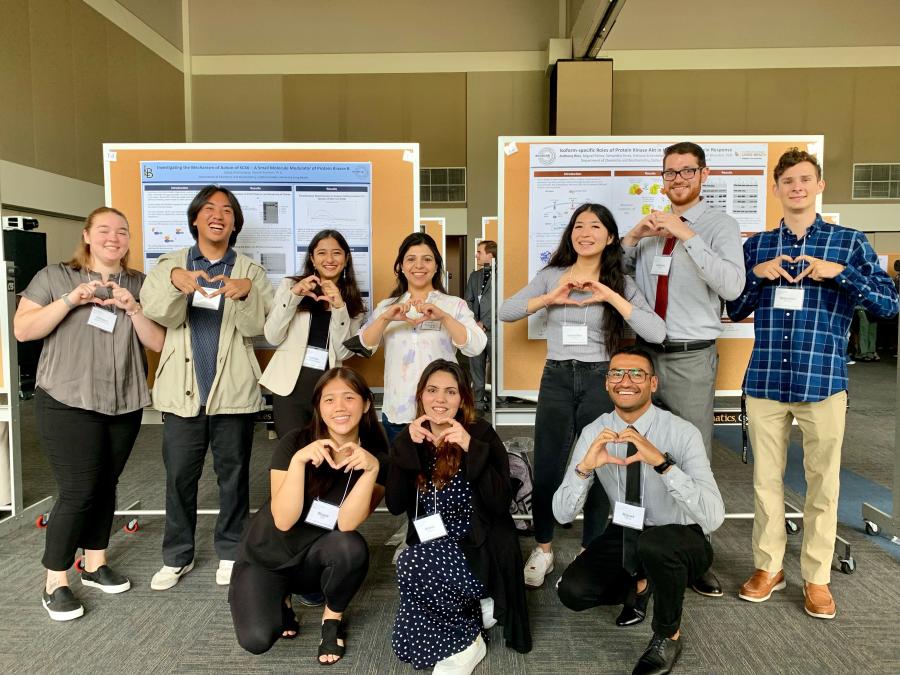Research @ the Beach
Each semester, this online publication is produced to acknowledge faculty and students for their research-related efforts. Our Fall 2024 issue of Research @ the Beach provides an overview of new awards / proposals / research expenditures for the 2023-2024 fiscal year, recognizes new grant funding, and highlights faculty and student research efforts. In this issue:
Discover how Anna Lee is innovating energy and nanotechnology solutions; Adrian Centreno is creating new play development for America’s future; Michael Carlson is researching the role microbes and viruses play in balancing life and death and the ocean; Cheryl Rock’s interdisciplinary approach to where science merges with the arts; Jiarui (Iris) Zhang’s accounting-related research in corporate disclosure and ESG through textual and novel datasets; and how Min Gu is rethinking art education with immigration and disability.
We are also proud to highlight the amazing research of graduate students Anise Mansour and Bhavraaj Singh along with undergraduate students Alejandro Duran and Shayla Tran.
More information can be accessed by clicking the topics below.
July 1, 2023 - June 30th, 2024
| Total # of New Proposals Submitted | Total New Research $ Requested | Total # of New Proposals Awarded | Total New Research $ Awarded | Research Expenditures |
|---|---|---|---|---|
315 | $128,780,614 | 154 | $ 52,169,486 | $48,068,497 |
| Faculty Name | Funding Agency | Amount Awarded | Project Title |
|---|---|---|---|
| Aili Malm | Arizona Board of Regents obo Arizona State University via Arnold Ventures, LLC/ASU Foundation | $177,193 | A Process and Outcome Evaluation of Truleo’s Automated Body-Worn Camera Review Technology in Three Arizona Police Departments |
| Matthew Becker | The University of Utah via DOEnergy | $604,860 | Enhanced Geothermal System ConceptTesting and Development at the Milford City, Utah Forge Site |
| Paul Baker-Prindle | Arts Council for Long Beach via City of Long Beach | $16,394 | 2023 - 2024 Exhibition Funding - Operating Grant ACLB |
| Megan Kline Crockett | Arts Council for Long Beach via City of Long Beach | $5,000 | Classroom Connections 2023-2024 |
| Janet Muniz | Institute for Citizens and Scholars | $35,000 | From Barrio to Boutique: Ethnic Commercialization of Downtown Santa Ana |
| Laurie Huning | NOAA | $262,209 | Understanding heatwave-snow drought relationships across the western United States |
| Rashida Crutchfield | R&S Kayne Foundation | $125,000 | Building Student Power in the Basic Needs Movement |
| Andrea Calabrese | City of Long Beach (POLB) | $200,000 | Advanced Structural Analysis, Performance Assessment, and Definition of Retrofit Strategies for the Seismic Fuse Elements of the Structures of the Wharfs at Pier "T" of the Port of Long Beach |
| Jinny Rhee | LACCD | $2,500,000 | Inclusive K-16 Engineering and Health Workforce Pathways in Long Beach |
| Babette Benkin | SJSU Research Foundation via NSF | $49,713 | Understanding Teacher Effectiveness and Retention Among Single Subject Math Program Completers in the First Five Years of Teaching (Project CSU TEAR) |
| Tyler Reeb | SJSU Research Foundation via State of California | $30,000 | SB1 Hydrogen Alliance for Clean Hydrogen Energy Systems (ARCHES) |
| Amr Morsy | SJSU Research Foundation via State of California | $75,000 | Climate Change Impacts on Long-Term Performance and Service Life of California Transportation Earthworks Prone to Weather-Driven Deterioration |
| Joel Zinn | The Ohio State University via NASA | $25,541 | Asteroseismology using the galactic bulge time domain survey |
| Vasanthy Narayanaswami | NIH | $590,000 | Role Of Apolipoprotein E In Maintaining the Blood Brain Barrier Integrity |
| Urizar Guido | NIH | $147,296 | Intergenerational Effects of Stress among Low-Income Pregnant Mothers & their Infant |
| Enrico Tapavicza | NIH | $442,500 | Biomedical Research and Research Training |
| Bo Fu | Boeing | $50,000 | Optimizing Safety in Aviation through Gaze Analytics |
| Shailesh Chandra | CA Department of Transportation (CalTrans) | $113,117 | Impacts of Changing Agriculture Supply Chains on California Roads and Bridges |
| Iveris Martinez | Alzheimer's Orange Coounty (AOC) via DHHS | $23,268 | Adult Day Program at Leisure World Seal Beach |
| Maricela Maldonado | NIH | $224,388 | Confocal Microscope |
| Matthew Becker | Rutgers University via DOE | $1,199,378 | Geophysics for Environmental Management Students (GEMS): addressing the grand challenge of soil and groundwater contamination |
| Amanda Fisher | California Institute for Bidiversity (CIB) via State of CA | $10,000 | Plants of a Lost World: Preserving Southern California Native Plant Specimens from the Urban Wild Interface |
| Joseph Kalman | Office of Naval Research (ONR) | $489,000 | Surface Modified Oxidizers for Next Generation Solid Propellants |
| Ryan Blair | NSF | $400,000 | PRIMES: The Topology of Knots and Replication as a Vehicle for Student Research |
| Darren Johnson | NSF | $415,682 | ORCC: RUI: Understanding plasticity to ocean warming: evaluating genetic variation and transgenerational effects at multiple spatial scales |
| Royce Smith | Arts Council for Long Beach | $10,000 | 2023 - 2024 Exhibition Funding - Operating Grant ACLB |
| Megan Kline Crockett | Arts Council for Long Beach | $1,000 | Classroom Connections 2023-2024 |
| Patrick O'Rourke | IIE via DoD | $469,988 | Language Training Center 24 |
| Thomas O'Brien | USC via US DOT | $235,822 | Pacific Southwest Region University Transportation Center (PSR UTC) Consortium, 2022 - 2026 Grant |
| Jinny Rhee | USAF/AFMC AFRL via DoD | $136,172 | AFRL, Technology, Engineering and Mathematics (STEM) Program for the training and development of mechanical and electrical engineering professionals in the Antelope Valley area of California |
| Rafael Topete | US Dept of Education | $2,374,995 | CAMP |
| Bita Ghafoori | California Victim Compensation and Government Claims Board | $1,327,700 | Long Beach Trauma Recovery Center 2024 |
| Katarzyna Slowinska | NIH | $593,447 | De Novo Synthesis of Collagen-Like Polymers for Biomedical Applications |
| Theodore Stankowich | Cal Poly Pomona Foundation via CSU ARI | $9,766 | Incorporating native vegetation into a landscape-scal Integrated Pest Management Program in Ventura County |
| Matthew Becker | William Marsh Rice University via DOE | $91,244 | Fiber-Optic Geophysical Monitoring of Reservoir Evolution at the FORGE Milford Site |
| Courtney Ahrens | University of Washington via NIH | $15,402 | Project THRIVE: Testing an app-based early intervention to reduce alcohol use and PTSD after sexual assault |
| Saana Polk | Venice Family Clinic via DHCS | $1,000 | Mentored Internship Program |
| Margaret Gutierrez | DHCS | $243,000 | Emergency Preparedness Technical Assistance and Services Tailored for Tribes and Tribal Health Programs |
| Laura D'Anna | Heluna Health via DHHS | $50,000 | PPOWER LB |
| Laura D'Anna | Heluna Health via DHHS | $250,000 | EF HIV-Expressing Freely to Stop HIV |
| Ron Mark | CA Commission on POST | $374,706 | POST Executive DevelopmentCourse |
| Stephen Mezyk | The Regents of the University of California (UC Berkeley) via DOE | $900,000 | Center of Excellence for Research and Training in Radioactive Waste Management - Rad-CERT |
| Shadi Saadeh | Cal Poly Pomona Foundation via SJSU Research Foundation (via State of CA) | $25,000 | Use of Polymer Fiber to Improve Mechanical Properties of HMA Containing High RAP |
| Susan Salas | Comprehensive Community Health Centers via AHP | $21,000 | Mentored Internship Program |
| Ga-Young Suh | American Heart Association | $750,000 | Peripheral Arterial Stents Monitoring Real-Time Dynamics |
| Antonio Martinez | NSF | $175,000 | At the Intersection of Computer Science and Mathematics: Ideas and Strategies for Conceptual Growth |
| Alyssa Abbey | NSF | $618,108 | CAREER: Unraveling spatiotemporal deformation patterns in the Basin and Range and Walker Lane provinces: Combining geochronology methods and scaffolded peer-peer student mentoring |
| Judy Brusslan | NIH | $484,775 | Bridges to the Doctorate Research Training Program at California State University Long Beach |
| Rafael Topete | LACOE | $25,000 | LACOE Intern Program 2024-2024 |
| Barbara Caplan | NIH | $751,088 | Characterizing Latino Caregiver Engagement in Early Intervention Services for Autism |
| Wilson Kingsley | Solutions Journalism Network, Inc. | $7,500 | Bringing a Mental Health Component to Policing -- the CAST Program at CSULB |
| Forouzan Golshani | NSF | $307,534 | Intergovernmental Personnel Act Assignment FY24-25 |
| Peter Ramirez | NIH | $744,974 | Determining the role of AnnexinA2 in HIV-1 and SARS-CoV-2 assembly |
| Lora Stevens-Landon | NSF | $500,000 | Expanding geoarchaeology opportunities for underrepresented students through Multiproxy Investigations of Human-Environmental Dynamics |
| Nancy San Luis | CSAC | $430,659 | CalSOAP 2024-2025 |
| Ron Mark | CA Dept of Fish and Wildlife | $283,601 | CSU Long Beach POST Management Training Seminar for CA Department of Fish & Wildlife |
| Ron Mark | CA Commission on POST | $682,641 | POST Management Course |
| Laurie Huning | NASA | $300,000 | Advancing the understanding of extreme events and snowpack variability |
| Elena Grintsevich | UC San Diego via NIH | $40,000 | Pro-Survival Responses to Neurocellular Stress |
| Shams Tanvir | The University of Texas at Arlington via US DOT | $6,550 | Distribution of Potential Benefits across Stakeholder Groups for Shared Electric Vehicles Serving Multi-University Commute Travel |
| Nancy Meyer-Adams | HCAI | $1,1330,000 | Social Work Education Capacity Expansion (SWECE) |
| Mehrdad Aliasgari | Northwestern University Center for Inclusive Computing | $12,500 | Advancing Equity and Empowerment in Computing |
| Ron Mark | CA Commission on POST | $2,875,694 | Sherman Block Supervisory Leadership Institute |
| Ava Hedayatipour | NSF | $399,935 | CISE-MSI: RCBP: SCH: Global Access to Lab-On-Chip Through Additive Manufacturing |
| Ga-Young Suh | NIH | $752,500 | Biomechanics and Hemodynamics of Human Aorta with Remodeling after Endovascular Repair |
| Young-Seok Shon | UC Irvine via DOEnergy | $55,000 | Ensembles of Photosynthetic Nanoreactors (EPN) |
| Amy Ricketts | CSU East Bay Foundation via NSF | $89,652 | Aligning the Science Teacher Education Pathway. A Networked Improvement Community |
| Tyler Reeb | UC Davis via CalTrans | $170,000 | Active Transportation Resource Center (ATRC) Caltrans-funded Parent Contract |
| Michael Peterson | NSF | $4,182,947 | PREM: Cal. State Univ. Long Beach and Ohio State University Partnership for Education and Research in Topology |
| Tairan Liu | US Army via DoD | $475,448 | Acquisition of a Multi-Agent Experimental Platform for Multifaceted Research in Networked Systems and Promoting Workforce Diversity |
| Paul Laris | NSF | $383,142 | A Pyrogeographic Approach to Examine Methane Emissions From Savanna Fires |
| Megan Kline Crockett | City of Long Beach (POLB) | $5,000 | Classroom Connections 2024-25; Keyon Harrold |
| Vasanthy Narayanaswami | University Enterprises, Inc. CSU Sacramento via CSU Chancellor's Office (Prime) | $25,000 | LSAM-SPaRA II Year 1 |
| Vasanthy Narayanaswami | University Enterpirses, Inc. CSU Sacramento via NSF (Prime) | $12,034 | LSAMP-SPaRA II Year 1 |
| Shailesh Chandra | University of Tennessee via US Dept. of Transportation | $145,000 | Center for Freight Transportation for Efficient and Resilient Supply Chain (FERSC) |
| Ron Mark | CA Commission on POST | $42,037 | Supervisory Course Train the Trainer |
| Babette Benkin & Kagba Suaray | CSU Northridge Foundation | $150,000 | The Long Beach - Compton Data Science Learning Community |
| Danielle Munoz | Chico State Enterprises via CDPH via CDSS | $225,000 | CalFresh Healthy Living |
| Chris Lowe | UC San Diego via NOAA (Prime) | $358,371 | Growing a More Resilient and Equitable Southern California Coastal Ocean Observing System |
| Tyler Reeb | University of Southern California via CalTrans | $30,000 | Best Practices in Freight Technology Transfer |
| Pitiporn Asvapathanagul | US Dept of Education | $42,314 | ASCEND: AANAPI Student Success CENter & Development |
| Rebeka Sultana | UCSD via California Sea Grant | $207,281 | Field Monitoring of Microplastics Loading and Accumulation in Low Impact Development-Best Management Practices (LID BMPs) |
| Michelle Taylor | DHHS-Administration for Children and Families | $100,000 | Exploring Teacher Thriving in Head Start and Associations with Child Outcomes: Implications for Supporting the Workforce |
| Seol-Chun (Sean) Kwon | Ubridge Co., LTD | $355,779 | The development of Sofware-based radio platform technology and the mobile ad-hoc network technology |
| Hamid Rahai | Center for Disease Control & Prevention | $55,998 | Intergovernmental Personnel Act Assignment FY24-25 |
| Joe Kalman | US Army | $2,020,000 | Propellant Burning Rate Control through Crystalline Oxidizer Microstructure |
| Ron Mark | CA Commission on POST | $616,211 | POST Use of Force (UOF) Force Options De-escalation Train-the-Trainer Course |
| Karyn Scissum Gunn | Western Interstate Commission for Higher Education (WICHE) | $1,000 | WICHE Workshop |
| Nancy Meyers Adams | UCLA via LA County DCFS | $1,419,846 | Training and Master of Social Work Internship Program |
| Kelli Sanderson | Vanderbilt University via DHHS Administration for Community Living | $62,744 | Understanding Integrated Supports for Community Living and Participation Among Adults with Intellectual and Developmental Disabilities (IDD) and Their Families |
| Rashida Crutchfield | California Community Foundation (CCFFDN) | $100,000 | CEHE General Operating Expenses |
| Mimi Kim | Moving Mountains, Inc | $66,103 | Culturally Responsive Gender Based Violence Research |
| Rashida Crutchfield | Samueli Foundation | $25,000 | General Operation Support |
| Mahdi Yoozbashizadeh | Junior Science and Humanities Symposium via NTSC via DoD | $50,000 | Junior Science and Humanity Symposium-California region |

Anna Lee, PhD
Assistant Professor
Department of Electrical Engineering
College of Engineering
Dr. Anna Lee joined the Department of Electrical Engineering at California State University, Long Beach (CSULB) in Fall 2022 as an assistant professor. Prior to CSULB, she was an assistant professor at the University of Minnesota, and before that, she completed postdoctoral fellowships at DOE Argonne National Laboratory’s Center for Nanoscale Materials and Chemical Science & Engineering divisions, as well as in the Electrical Engineering department at the University of Toronto after receiving a Ph.D. degree from University of Toronto Canada.
Dr. Lee's initial interest in research began with an introduction to quantum dot systems, where she was fascinated by how their intrinsic optoelectrical properties change at the nanoscale and the potential to explore complex phenomena through light-matter interactions. This early experience revealed how the behavior of charge carriers could be studied through light-matter interactions, laying the foundation for her current research. Today, the overarching theme of Dr. Lee's work focuses on the design and development of next-generation devices and methods for energy storage, conversion, and sensing applications. Her research explores optical and electrical properties of solid-state materials in complex device systems and aims to discover fundamentally new concepts that could disrupt current approaches to sustainable energy and sensing technologies.
Her recent research activities, including patented developments in fast-charging batteries, solar cells, membrane technology, and nanoscale sensors, reflect her long-term objective of innovating energy and environmental solutions. Her work is published in high-impact journals, including Nature Communications and Nature Catalysis. Some of Dr. Lee'scurrent projects include studying charge carrier behaviors for fast-charging energy storage, exploring monolithic integration of photoelectric conversion and storage systems, and understanding near field distributions in nanostructures for ultrafast modulation and sensing applications.
Currently at CSULB, Dr. Lee is actively establishing an experimental research lab while pursuing external funding to support her work. This endeavor aims to enhance research capacity at CSULB and make an impact not only on the scientific community but, importantly, on her students at CSULB, as they represent the future of equitable STEM leadership. Her goal is to equip them with the skills and insights necessary to drive meaningful advances across the field. Through this work, Dr. Lee looks forward to contributing to the broader scientific community and fostering an environment where innovation thrives.
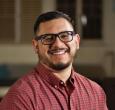
Adrian Centeno
Assistant Professor
Department of Theatre Arts
College of the Arts
My scholarship and artistic practice were shaped by early encounters growing up in California’s High Desert. I wouldn’t say I sought the theatre out so much as it sought me. I remember hanging out near the drama room as a sophomore in high school and being pulled into a rehearsal for The Mission by Culture Clash because another student failed to show up. I wasn’t conscious of it then, but this interpellation into the Chicano theatre would begin a lifelong pursuit of the performing arts. Culture Clash’s work was my gateway, introducing me to clown, pantomime, improv, and other styles of performance that would dominate my early years of theatrical exploration.
The art of new play development quickly supplanted any desire to perform, and I became fascinated with structure, critique, and theory. I majored in playwriting at UC Riverside and learned devised techniques through projects with professors like Rickerby Hinds. Later, as a graduate student at UC Santa Cruz, I was able to synthesize earlier experiences with emergent interests, focusing my research on new play development, community building, and the work of Chicano artist-theorists like Luis Valdez, Gloria Anzaldúa, and Guillermo Gomez-Peña. My writing connected their work through an exploration of the Nahua concept nepantla (“in-between-ness”), tracing “border consciousness” as a distinct structure and organizing principle in the production of new artistic works.
Upon completing my graduate program, I transitioned to an alternative academic career path, working as a dramaturg and literary manager for theatres across the country, including Cleveland Play House, South Coast Repertory, San Diego Repertory Theatre, New York Stage & Film, and the Ojai Playwrights Conference, among others. This time spent in the field has been invaluable as a scholar, allowing me to test my theoretical questions against real-world practice. After nearly a decade in new play development, I accepted the role of artistic director at one of the major new-play incubators in the country: Seven Devils New Play Foundry. I continue to lead the Foundry’s annual Playwrights Conference, which has developed work for Broadway (Eric Coble’s The Velocity of Autumn), the big screen (Samuel D. Hunter’s The Whale), and everything in between.
I’m incredibly proud to join CSU Long Beach’s College of the Arts as an Assistant Professor of Theatre Arts. I believe my expertise in new play development will serve our highly generative student population. New works produced for Theatre Threshold, our student-led theatre space on campus, are among the most exciting, innovative works I’ve seen in Long Beach. I’m thrilled to contribute to a department with a vision for American theatre's future and the many cultures that comprise it.
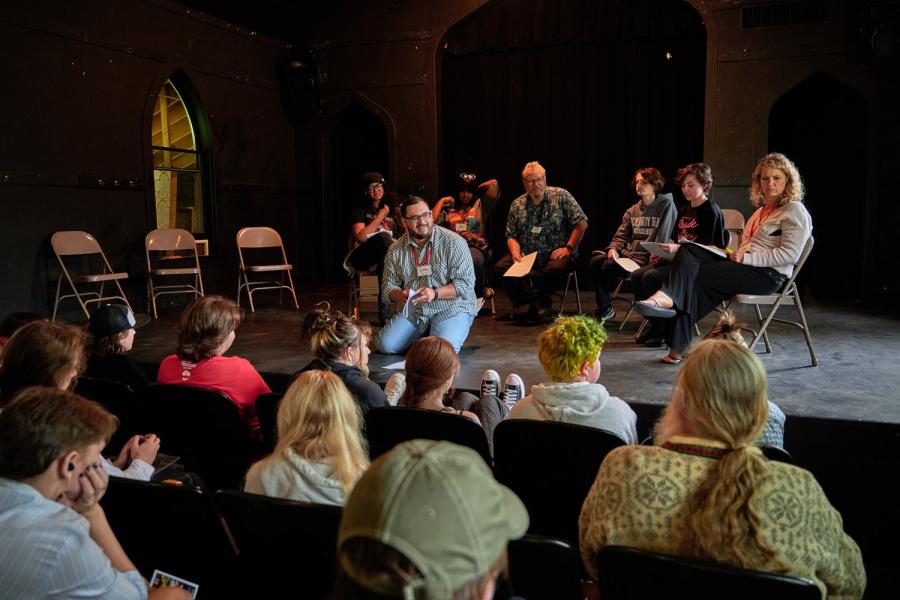
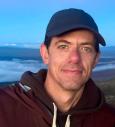
Michael Carlson, PhD
Assistant Professor
Department of Biological Sciences
College of Natural Sciences and Mathematics
As an oceanographer, I study the microscopic organisms that power our oceans and planet. I was fascinated by coral reefs in my early life and was lucky to get to observe them when they were vibrant and thriving. In 2007 three events catalyzed my research career: witnessing the mass death of coral reefs I had grown up visiting due to bleaching; participating in a graduate-level summer research internship at University of Hawaii focused on understanding the biology of coral bleaching, where I was first introduced to marine science; and working alongside luminaries and mentors in the field who inspired and guided me with their expertise and dedication. These experiences initiated my desire to understand how the balance of life and death in the oceans is changing and the role microbes and viruses play in this balance.
I am broadly interested in understanding the causes and consequences of the death of microbes in the oceans. Half of earth’s primary production occurs in the oceans, largely mediated by fast-growing microbes that comprise a tiny fraction of earth’s total biomass. Every day, massive numbers of these microbes die, balancing their rapid growth. In their death, these microbes are the food that sustains marine food webs or eventually become sequestered on the seafloor. How, when, and where these microbes die remains largely unknown. I use genome-enabled tools to investigate the ecology, physiology, and evolution of marine microorganisms and their predators, parasites, and viruses in the ocean. These approaches help inform how mortality factors impact the functioning of marine ecosystems in the present and future oceans.
My work is currently funded by the CSU Council on Ocean Affairs, Science & Technology to develop and employ new molecular tools that can detect viral infection of diatoms, single-celled photosynthetic microbes that are abundant in the oceans. Quantifying how many of these phytoplankton are killed by viruses is essential to monitoring the health of coastal California waters.
Ultimately, the oceans are an essential resource that sustains and drives life on this planet. I believe that understanding how the oceans function is paramount to tackling the largest issues that we currently face. Through my research, I hope to cultivate generations of ocean scientists and stewards. At CSULB, my research aims to break down traditional barriers in ocean sciences by providing accessible, research-driven educational opportunities. Through mentorship and hands-on training in advanced field and laboratory techniques, my lab engages a diverse group of students in cutting-edge marine science, equipping students with valuable technical skills and empowering them to contribute meaningfully to the scientific community and environmental stewardship efforts. This approach aligns with CSULB’s mission to support inclusive education while addressing pressing environmental challenges that impact both local and global communities.


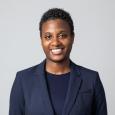
Cheryl Rock, PhD
Associate Professor
Department of Family and Consumer Sciences
College of Health and Human Services
My current RSCA as an Associate Professor focuses primarily on interdisciplinary approaches where science merges with the arts including the following: (1) Ethnomedicine, (2) Food Metaphysics (3) Science of Rum Distillation Technology from a diasporic perspective and (4) Science of Pedagogical learning models such as Kolb’s Theory of Experiential Learning. Specifically, my eclectic research interests stem from my personal ethos as a: Nutritional Biochemist, Martial Artist and an International Education advocate and ambassador.
First, my Ethnomedicinal research involves examining mechanisms of disease mitigation through plant-based approaches in native foods from my Barbadian heritage. For example, my research includes studying the Ethnomedical Properties of Mauby Bark, a popular plant material used to make a beverage in Barbados and the wider Caribbean. In this research, I have characterized several compounds in Mauby Bark that are of importance in diabetes cancer as well as cardiovascular disease and have been published in peer – reviewed journals such as the Journal of Food Research.
Second, as it relates to Food Metaphysics, I specialize in Martial Science; an integration of internal Martial Arts (Hapkido) from a dietary approach, with principles of Food Science, Martial Arts philosophy as well as the Bagua Energy map. Specifically, I utilize the Bagua Energy Map and the Five-Element Theory as a framework to educate people of how Eastern (i.e., Bagua) and Western (i.e., Food Science – Nutritional Biochemistry) concepts intersect through diet. As a result, I have published a book called the “Bagua Plate: An Integrative and Practical Approach to Health and Wellness”.
Third, through my study abroad class “Distilling and Brewing Technology in Barbados”, Since summer 2019, I researched and documented the distinct geological features of Barbados, major historical figures, rum production, and rum celebration. As a result, I can educate readers about the global dynamics of the diasporan experience inter-connecting Africa, the Caribbean, and the United States of America. Consequently, my research epitomizes a curriculum that embraces Diversity, Equity and Inclusion (DEI). As a result, I have published a book “Rumbullion: A Historic, Artistic and Scientific aspects of Barbados Rum.”
Forth, as it relates to the Scholarship of Teaching and Learning (SOTL), I foster experiential learning through the application of an active learning framework, specifically referred to as Kolb’s Experiential Learning model to contribute the pedagogy of Food Science. As a result, I published in peer- reviewed journal such as the Journal of Food Science with a focus on First Year-Experience (FYE) at CSULB students through a GE Critical Thinking class called “FrankenFood: Fact or Science Fiction”.
In brief, my eclectic research interests reflect an ongoing contribution to High Impact Practices (HIP) of Food Science that brings visibility and prestige to the College of Health and Human Services (CHHS), Family and Consumer Sciences (FCS) Department as well as CSULB nationally and internationally. Additionally, my RSCA has demonstrated my ability to advance the field of Food Science within the areas of the Philosophy of (1) the Martial Arts and (2) The Scholarship of Teaching and Learning from an interdisciplinary approach.
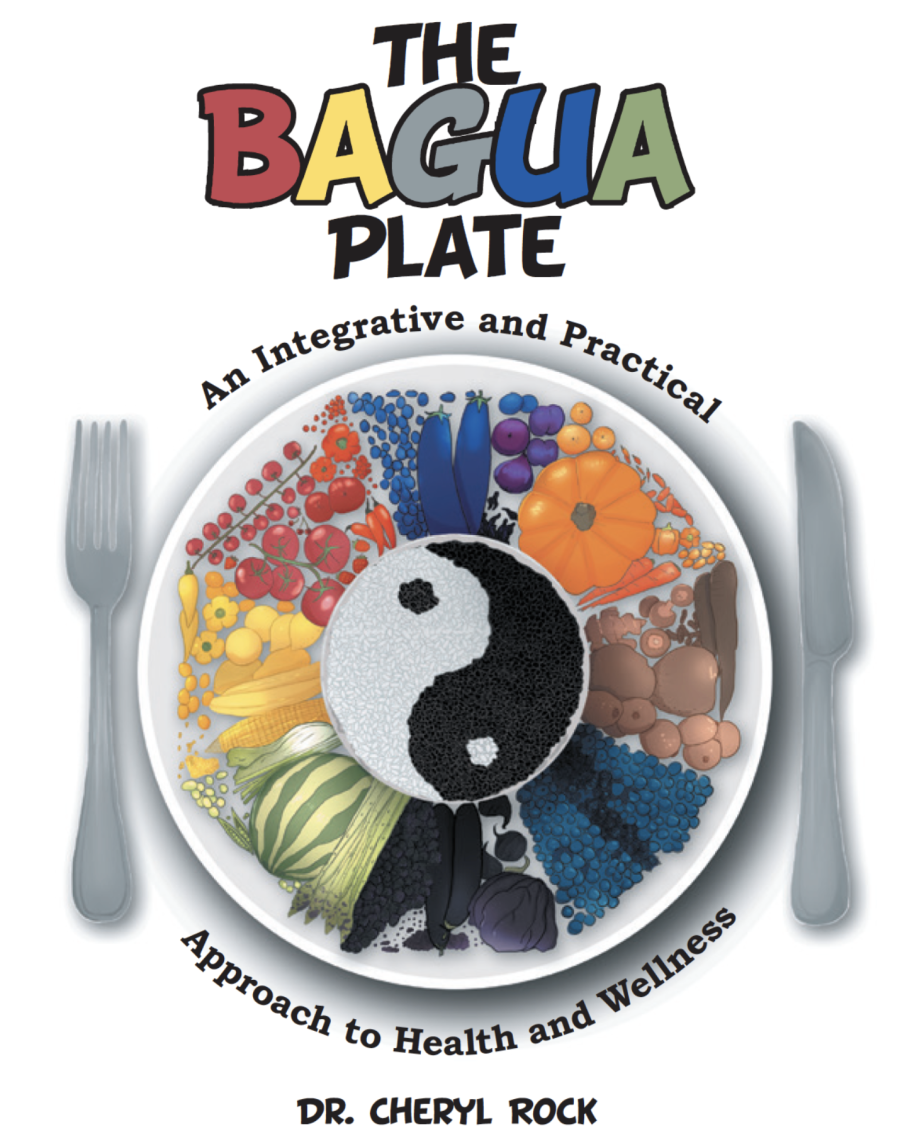

Jiarui (Iris) Zhang, PhD
Assistant Professor
Department of Accounting
College of Business
Dr. Jiarui (Iris) Zhang is an Assistant Professor of Accounting at the College of Business. Her research primarily focuses on financial archival studies, with a particular interest in voluntary disclosure. Her broader research interests include textual analysis, human capital, and Environmental, Social, and Governance (ESG) topics. Dr. Zhang’s fascination with exploring the unknown and her curiosity about the dynamic relationships between corporate activities and real-world challenges led her to pursue a Ph.D. in accounting. She thrives on learning new methodologies and exploring emerging research areas, which she believes are crucial for fostering intellectual growth and contributing innovative solutions to both academia and the business world.
During her Ph.D. program, Dr. Zhang became particularly fascinated by the nuanced information embedded in managers' linguistic choices in various voluntary disclosure channels, such as ESG reports and earnings conference calls. Additionally, she helped develop and launch the inaugural and second Hawaii Accounting Research Conference to serve the profession. Since completing her Ph.D. in 2020, Dr. Zhang has published six refereed articles in esteemed academic journals. She continues to develop projects in collaboration with faculty from a wide range of institutions and disciplines. For Dr. Zhang, research is driven by intellectual curiosity and the excitement of collaborating with inspiring colleagues. She finds immense value in pushing the boundaries of knowledge through innovative research, especially by using novel datasets and cutting-edge technologies to address real-world issues and inform policy debates.
Dr. Zhang’s work aims to uncover how conflicts of interest between stakeholders and managers affect disclosure quality, as well as the consequences of such conflicts and potential mitigating mechanisms. Additionally, her work addresses the societal implications of corporate decision-making, particularly on employees, labor, and broader ESG concerns, aligning her research with the increasing demand for corporate transparency and accountability.
One of Dr. Zhang's recent works, “Does Voluntary ESG Reporting Resolve Disagreement among ESG Rating Agencies?”, published in European Accounting Review, explores whether voluntary ESG disclosures help reduce disagreement among ESG rating agencies. This project gained attention from prestigious platforms such as the Columbia Law School Blue Sky Blog and the European Accounting Association Blog. Another recent article, “Redacted Disclosure and Audit Fees,” published in the Journal of Accounting, Auditing and Finance and featured in the CSULB Spring 2024 EII Issue, investigates whether and how redacted disclosure in material contracts is related to audit costs. She also co-authored “Corporate Lobbying and ESG Reports: Patterns among US Companies, 1999–2017,” published in Business and Politics. This study explores companies’ use of ESG reports as a signaling device to promote their reputation to legislators and convey their ability to provide electoral and policymaking support, which is valuable for lobbying. Additionally, her paper, “Financial Statement Comparability and Managers’ Linguistic Choices in Conference Calls,”has just been accepted by European Accounting Review and will be featured in the CSULB Fall 2024 EII Issue. Dr. Zhang has also obtained the Certified Management Accountant (CMA) certificate, which benefits both her teaching and research.
Dr. Zhang remains committed to contributing to academia through impactful research that resonates with the academic community and broader societal interests. Her work not only adds to emerging literature but also provides valuable insights for policymakers and firms.

Min Gu, PhD
Assistant Professor
Department of Liberal Studies
College of Education
My experiences working with autistic children in China and disabled artists in Oakland have led me to question stereotypes and “normal” representations of art, experience, and learning. These experiences have also reshaped my understanding of my role as an art educator. I no longer see myself as an instructor, but as a facilitator, learning alongside disabled students.
Disability experiences in art classrooms are often overlooked, dismissed, or stigmatized by normative understandings of art-making and learning. Challenging this disenfranchisement, my research critiques conceptions that view disability as a personal, biological deficit and questions the dominance of Eurocentric perspectives in art education. As a researcher, I collaborate with disabled students, artists, and scholars internationally to explore the nuanced and varied experiences of people with disabilities, which are often unrecognized by ableist art curricula and pedagogy. Currently, my research explores the intersection of immigration and disability, exploring the complexities and particularities of immigrant disablements within the context of art education.
One of my research papers, “The Pedagogy of Waiting: A Reorientation to Time with Artists with Disabilities and Creative Growth Art Center,” was published in the special issue Origins, Objects, Orientations: New Histories and Theories of Race and Disability in the Journal of Disability Studies Quarterly. This study examines the artistic practices of disabled artists through field observations at Creative Growth Art Center in Oakland, California. From this, I developed the concept of a “pedagogy of waiting,” a framework that invites us to reconsider temporalities in art education and practice. The pedagogy of waiting, which is informed by the lived experiences of disabled artists, offers an alternative to able-bodied and able-minded pedagogies. One of the artists central to this exploration is Latefa Noorzai, a native Farsi speaker and immigrant to the United States. Her art practice, alongside the pedagogical approach at Creative Growth, challenges the normative temporalities that often define art learning and production.
Informed by the ways in which disability continuously challenges and informs the field of art education, my research also investigates how different forms of experiential participation influence the lives of students, preservice teachers, in-service teachers, and individuals within diverse communities. By focusing on the intersection of disability, immigration, and art education, I aim to highlight how these intersecting identities shape the ways in which people engage with art, learning, and pedagogy.
Most recently, I was awarded the ORED Multidisciplinary Research Grant to further investigate inclusive arts practices through a global exploration of arts, disability, and race. One of the goals of this research is to create a pathway for integrating inclusive arts practices—both local and global—into K-12 classrooms, so that these approaches can directly impact and shape the learning experiences of future students.

Anise Mansour
MS in Physics Student
Department of Physics
College of Natural Sciences and Mathematics
Faculty Advisor: Dr. Claudia Ojeda Aristizabal
Looking for Signatures of Low Dimensional Magnetism in Molecular Thin Films and Van Der Waals Ferromagnets
Quantum materials have unique properties that can only be explained through quantum mechanics. They have gained considerable attention over the years as they present exotic states that are suitable for applications in quantum computing, low power electronics, photovoltaics, and more. Among these, low-dimensional materials exhibiting magnetic properties hold great promise as building blocks for two dimensional (2D) devices, including those that use a technology called “spin-orbit torque”. Quantum materials that exhibit a magnetic order can lead to unprecedented low power, non-volatile memories and transistors, the holy grail for magnetic memory technologies.
One pathway to understand low-dimensional magnetism that we have pursued in my research group is through the study of metal phthalocyanine (MPcs) molecules at the surface of graphene. Graphene was discovered in 2004 and is the first 2D material observed in nature. It exhibits metallic behavior, possesses remarkable strength, and most importantly, provides an ideal platform for the demonstration of quantum phenomena. MPcs are versatile macrocyclic planar aromatic molecules capable of coordinating with most transition metals, some of them magnetic, imparting a wide range of electric, magnetic, and optical properties. My project investigates how the manifestation of quantum phenomena and magnetism, visualized by measuring the resistance of graphene as a function of magnetic field, can be fine-tuned by the presence of MPcs. My research team and I hypothesize that flexibility provided by the MPcs allows for the fine-tuning of graphene’s characteristics. Indeed, MPcs are highly valuable in developing advanced functional materials.
We found that the 2D heterostructures of MPcs improves graphene’s electronic properties after the deposition of copper phthalocyanine (CuPc). Notably, the charge carrier mobility, a metric that quantifies how easy electrons move in a material under an external electric field, improved significantly. Additionally, we observed an important charge transfer between the graphene and CuPc; CuPc is acting as an effective electron acceptor. This means that the marriage of graphene with CuPc preserves the desired attributes of graphene, while bringing new properties that make the process of charge recombination possible. This is the heart of photovoltaics (i.e., solar-powered technologies). Thus, these results provide a foundation to the study of magnetic MPcs and demonstrate the potential of these molecular/graphene heterostructures in photovoltaic applications that may span rooftop solar panels, solar-powered telecommunication systems at remote locations, and solar-powered water pumps.
Our results on the CuPc/graphene heterostructures demonstrate that combining an easily obtained atomically thin metallic material, such as graphene, with an array of massively produced molecules, such as CuPc, against expectations, improves the way the electrons travel in graphene. Improving the way electrons travel can lead to the creation of devices with faster response times, improved performance, and reduced power consumption. The implication of this finding is far-reaching by leading to the development of new, smaller, more efficient, and cost-effective electronics or other technologies that benefit various sectors of society. For example, advancements in cleaner and energy efficient technologies can mitigate health effects caused by environmental issues, such as climate change, and can support efforts to promote environmental justice. Marginalized and lower-income communities often suffer disproportionately from environmental challenges; by developing sustainable technologies, we can move towards alleviating environmental racism. Although large-scale production of devices that make use of quantum materials is still under development, expanding the breadth of both material knowledge and manipulation equips scientists and engineers worldwide in creating new technologies.
Our work is funded by the U.S. Department of Energy’s Office of Science, under the Program of Experimental Condensed Matter Physics. I have also received support from Partnerships for Research and Education in Materials, a National Science Foundation initiative that supports our partnership with the Ohio State University.
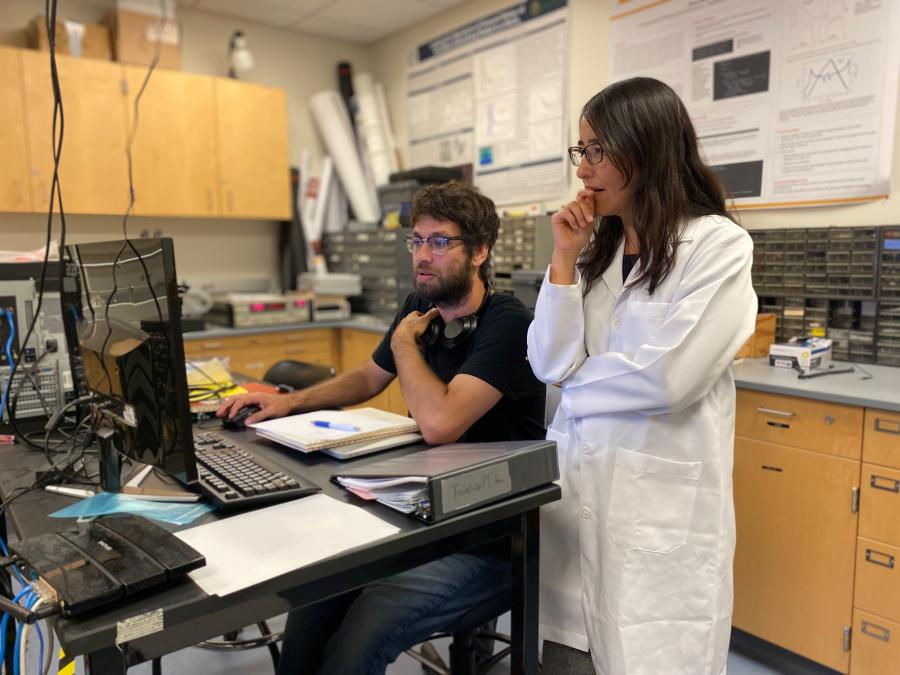


Bhavraaj Singh
MS in Computer Science Student
Department of Computer Science
College of Engineering
Thesis Chair: Muhammad Abdul Basit Ur Rahim
Leveraging Large Language Models for Clinical Documentation Improvement
Bhavraaj Singh, an Indian Computer Science Engineer with a passion for innovation and technology, has dedicated his academic journey to leveraging artificial intelligence (AI) for real-world impact. As part of his Master’s thesis at California State University, Long Beach, he explored cutting edge approaches to improving clinical documentation in healthcare settings through large language models (LLMs). His research has gained academic recognition, with parts of it published in esteemed journals and presented at prestigious conferences, underscoring its significance in the field of healthcare AI.
In today's fast paced healthcare environment, accurate and efficient documentation is crucial for delivering quality care. However, medical professionals often struggle with time consuming paperwork that can lead to errors or incomplete documentation. This problem sparked Bhavraaj's motivation to investigate AI-driven solutions that could alleviate this burden. His goal was to develop tools that could support clinicians by automating parts of the documentation process, improving both accuracy and efficiency. Inspired by the rapid advancements in natural language processing (NLP), he set out to create AI medical chatbots for textual and infographic data along with an AI-based system that could intelligently categorize and analyze clinical information.
For his thesis, Bhavraaj developed an AI-powered Categorization and Analysis tool designed to help healthcare professionals efficiently process clinical information. The tool automatically classifies diseases into broader categories and visualizes the data, making it easier for medical professionals to interpret and utilize the information in decision-making processes. He also developed two distinct AI powered chatbots - one designed to process textual data and another focused on clinical infographics. He tested the tools’ performance in interpreting and summarizing complex medical records on various clinical datasets using an integrated retrieval augmented generation (RAG) framework.
The results of the tests were highly promising. The AI Categorization and Analysis tool demonstrated excellent precision in categorizing diseases and generating detailed visual representations. The textual AI chatbot achieved an F1 score, a measure of recall and precision, of 0.89, significantly outperforming traditional methods. The chatbots, specifically designed for medical queries, correctly answered 90% of the test questions, illustrating their potential for real-world healthcare applications. These tools offer a novel approach to clinical documentation, enabling better information management and quicker decision-making for healthcare providers.
The impact of this invention and its accompanying research have been profound, influencing both industry and academia. The AI Categorization and Analysis tool, alongside the medical chatbots, hold the potential to revolutionize how clinical data is processed and managed. By automating tedious and time-consuming documentation tasks, these tools allow healthcare professionals to dedicate more time to patient care, improving operational efficiency and reducing human errors in medical records.
In the academic realm, this research has paved the way for further exploration into AI’s role in clinical documentation. This work has demonstrated that large language models, when integrated with RAG framework, can be effective in categorizing, visualizing and interpreting complex medical data, opening up new research avenues in medical AI. Moreover, it showcases the importance of interdisciplinary collaboration, combining AI, healthcare and data analytics to address pressing challenges in modern medicine. The research bridges the gap between academia and industry, driving innovation in clinical documentation and highlighting the potential of AI to transform healthcare operations. Bhavraaj’s contributions serve as a foundation for future advancements in both the technology and medical sectors.

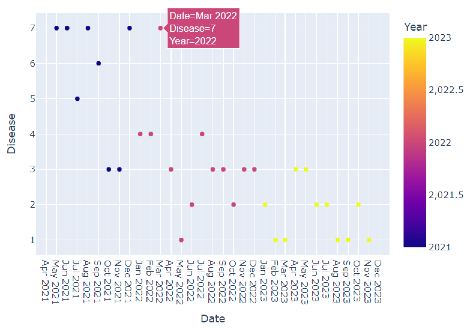

Alejandro Duran:
I enrolled at CSULB as a biochemistry major in Fall 2021, initially having a stronger interest in chemistry than in biology. As I explored my major, I gradually learned about scientific research through my chemistry courses and peers. In my second year, I discovered a passion for molecular cell biology and genetics when I attended the KURE Incubator Summer short course at CSULB, titled “Getting to Know DNA”. This course provided students with an in-depth understanding of DNA and exposed me to the type of work conducted in this field. It also served as an excellent introduction to an area of science I was not previously familiar with. After completing the course, I became interested in molecular cell biology and genetics research. My interests now grow towards the biological sciences as I took courses like genetics and biochemistry, which further fueled my passion for research. As a result, I interviewed and was accepted into the McNair Scholars Program as a member of the 2023-2024 cohort. Additionally, I joined a plant biology lab where I hope to gain valuable research experience to prepare for graduate school and a future career in biotechnology.
My current research focuses on leaf senescence in Arabidopsis thaliana, specifically looking at how the ANAC046 transcription factor regulates bolting-induced leaf senescence. Leaf senescence is the natural aging process in plants, where nutrients are recycled from older parts to newly developing regions. Bolting refers to the transition from the vegetative state to the reproductive state. Our lab aims to determine if ANAC046 upregulates leaf senescence, as predicted by the Gene Regulatory Network that was previously published by our lab. I sowed experimental replicates of WT plants and anac046 mutants at the beginning of Summer 2024, growing them under low light intensity. I harvested these plants at the time of bolting and 12 days later to measure chlorophyll levels and isolate RNA. The RNA was then used to synthesize cDNA for real-time qPCR. Using qPCR, I quantified NIT2 mRNA levels to determine any significant differences in expression between the WT and anac046 plants.
My research contributes to a deeper understanding of the molecular mechanisms of plant aging and nutrient recycling. Furthermore, it has the potential to advance agriculture and food security. By understanding the genetic regulation of leaf senescence, we can develop crops with optimized nutrient recycling, extended shelf life, and improved productivity. This could benefit farmers and the agricultural industry by promoting more sustainable farming practices and reducing waste.
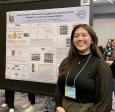
Shayla Tran
I first learned about the possibility of joining a research lab through my CHEM 111B instructor, Miguel Palma, who was a graduate student in Dr. Deepali Bhandari’s lab in the Department of Chemistry and Biochemistry. Miguel was kind enough to discuss a few research papers published by Dr. Bhandari and her students. At the time of our meeting, the only science course I had under my belt was general chemistry, so I was a bit overwhelmed by the terminology and concepts contained in those papers, but I was eager to learn more about the research process. Shortly after, I set up a meeting with Dr. Bhandari where she not only answered my questions about her research but also invited me to be a part of her group. I have now been an undergraduate researcher in her lab for ~2.5 years, discovering my passion for science and flourishing in the collegial and happy space that her lab is!
Since joining the Bhandari lab, I have been fortunate enough to participate in the Undergraduate Research Opportunity Program (UROP) and the Louis Stokes Alliance for Minority Participation (LSAMP). Both programs have provided me with financial support which has allowed me to devote time to work on my research project studying aspirin and its chemopreventive properties. Previous studies have shown that regular aspirin intake reduces the occurrence of many types of cancers, especially colorectal cancer (CRC), but the underlying biochemical mechanism remains poorly understood. Using a colorectal adenocarcinoma cell line known as DLD1, I am studying how aspirin regulates cell survival signaling in colorectal cancer. My results indicate that aspirin treatment triggers stress signaling in these cells and downregulates expression of a key protein which is known to be involved in cancer cell metastasis and chemoresistance.
According to the American Cancer Society, colorectal cancer is the second leading cause of cancer-related deaths in our country. It is projected that 1 in 23 men and 1 in 25 women will be diagnosed with colorectal cancer in their lifetime. Like many other cancers, CRC also shows disparity among races and ethnicities. Black Americans show the highest CRC incidence and mortality among major U.S. racial and ethnic groups, followed by Native Americans. Knowing that my findings will aid in our understanding of the molecular basis for the chemopreventive effects of this affordable drug keeps me motivated and excited to go to the lab every day. As I prepare to graduate next spring, I am excited about the prospect of publishing my research and passing the torch to other students in the Bhandari lab.
I consider myself fortunate to get the opportunity to work with Dr. Bhandari. She is not only an incredibly knowledgeable educator and scientist but also a deeply compassionate mentor who invests in each student's success and well-being. I hope my work in her lab will inspire and motivate other incoming first-year students to seek research opportunities early in their academic career, so they can also make the most of their undergraduate degrees.
